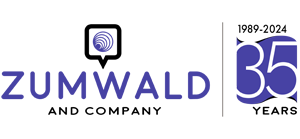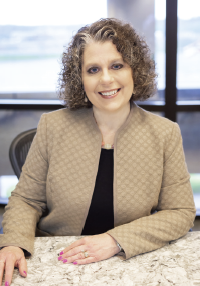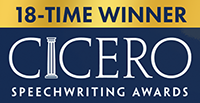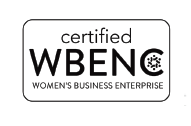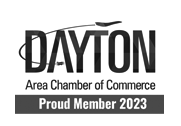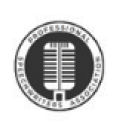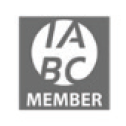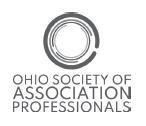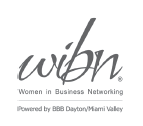One of the best public speaking resources that leaders overlook
Your conference keynote may miss the mark if you forget to tap one of the best public speaking resources available to every speaker right now.
 The email arrived late on a Monday evening:
The email arrived late on a Monday evening:
“I have to prepare the closing keynote speech at a prestigious annual conference for more than 1,000 technical professionals online. I’m struggling with my presentation and my delivery. Can you help?”
After connecting with the speaker, here’s what I learned:
- The speaker was seeking public speaking resources because she’d been unhappy with her past performance delivering virtual keynote presentations. She wanted speech coaching to improve her results.
- Although the speaker had a couple of general keynotes ready to go, she knew she needed help crafting just the right message for this audience. She also needed more professional, higher quality visuals.
- The speaker would have to record her keynote a month before the event and then appear live online for a Q&A session with the audience immediately after her keynote recording was played.
- The association hosting the conference – being held virtually for the first time instead of in-person – is considered a high-quality educational offering and the year’s capstone event. Therefore, the audience’s expectations would be high.
- As the closing keynoter, this speaker clearly had the toughest spot on the agenda. She’d have to captivate attendees for an entire hour – after they’d attended seven hours of educational sessions online. Because continuing education credits would be awarded, the speaker was not permitted to shorten her keynote.
What could this audience learn – and apply – from her story?
We began discussing her topic.
The session description she’d delivered to the conference organizer was brief, vague and rather boilerplate: her bio and a quick summary of the personal story she’d shared in the past, mostly with local, general audiences.
 Yes, her personal story was interesting and perhaps even nice to know.
Yes, her personal story was interesting and perhaps even nice to know.
But why would this niche audience care?
The more we talked, the more it became clear that a strong link to this particular audience was missing.
What could this audience learn – and apply – from her story?
I asked the speaker a few more questions to see if we could make that link.
But she stumbled.
A lot.
She could not answer the questions.
As it turned out, she knew very little about this prestigious audience she’d be addressing.
Clearly we needed more information.
The most important 45-minute call you need to make
 Before we went any further, I volunteered to contact the conference organizer – one of the best public speaking resources available to every speaker right now.
Before we went any further, I volunteered to contact the conference organizer – one of the best public speaking resources available to every speaker right now.
Beyond technical questions about the virtual conference platform and recording format, I had other specific questions to ask:
- What types of technical professionals will be attending? What are their titles and roles?
- Of the 1,000 attendees, what’s the percentage breakdown per type of technical professional?
- Where do these people work?
- Describe the dynamic of this conference and the community of attendees. Do they already know each other? Have they attended in the past? What will drive them to actually show up online?
- Based on the continuing education credits that will be awarded, how much time do you expect for content delivery, and how much time do you expect for the Q&A?
- Who will introduce the closing keynote speaker?
- Who will moderate the questions during the Q&A session?
- In the past, how have your closing keynoters ended this conference?
- This year, what is your audience looking for from the closing keynote – and why? As the conference organizer, is there a takeaway message you feel is important?
- What else would you like to see to ensure the closing keynote is a success?
 The conference organizer was more than happy to talk to me and returned my call within 10 minutes. (Apparently the conference organizer was flattered that someone preparing a closing keynote speech cared enough to ask so many questions about her unique audience.)
The conference organizer was more than happy to talk to me and returned my call within 10 minutes. (Apparently the conference organizer was flattered that someone preparing a closing keynote speech cared enough to ask so many questions about her unique audience.)
The more I listened to the conference organizer, the more I learned. To her, the stakes were high: She’d presented many successful conferences in the past, and she needed her first virtual conference to be just as successful – if not more so.
- Like most conference organizers, she knew exactly what she expected from the closing keynote at the conference. She was ready and willing to share her expectations with me.
- She not only described her expectations in rich detail but also tossed out a few ideas about how the speaker might address these expectations.
- She told me what the closing keynote might focus on – and more importantly – how she wanted attendees to feel when it was over.
The answers she provided were in her head, not online.
The only way I could get this critical information was to ask.
Changing the trajectory of the closing keynote speech
We went through my 10 questions one by one, and 45 minutes later, I had every answer I needed – and more. (Bonus: The conference organizer not only helped me uncover a fitting theme for the closing keynote but also sparked a crystal-clear direction for the speaker’s message.)
 Without this important call to the conference organizer, the speaker’s closing keynote would have been completely off base.
Without this important call to the conference organizer, the speaker’s closing keynote would have been completely off base.
An epic fail.
I reported back to the speaker what I’d learned, and immediately we began brainstorming an outline for her speech.
The keynote we were talking about now was much different:
- It was audience-focused, not speaker-focused.
- It would meet the needs and expectations of the audience.
- It would meet the needs and expectations of the conference organizer (and the conference itself).
Without a doubt, my 45-minute conversation with the conference organizer changed the trajectory of this speaker’s closing keynote.
If you’re looking for public speaking resources, don’t overlook the conference organizer.
Why are conference organizers so important?
- Conference organizers have their fingers on the pulse of their audience. They can give you deep insights you wouldn’t get otherwise.
- Conference organizers can tell you what is going on right now with their audience.
- Conference organizers can tell you what their audience wants and needs to hear.
That is why having an in-depth conversation with the conference organizer is one of the best public speaking resources available to you, as a speaker.
And it’s free.
So here’s the question:
Are you taking advantage of this free and available resource?
One of the best public speaking resources is a phone call away
 So many leaders right now are revamping their in-person keynotes for virtual conferences. If you’re one of these leaders, here’s some advice if you’re looking for public speaking resources to get you started:
So many leaders right now are revamping their in-person keynotes for virtual conferences. If you’re one of these leaders, here’s some advice if you’re looking for public speaking resources to get you started:
- After you’ve been accepted for a conference – and before you begin preparing your keynote – set aside 45 minutes to have a heart-to-heart with the conference organizer.
- Ask the right questions. (See my 10-question list above for starters.)
- Do not make assumptions about your audience or create your keynote speech in a vacuum.
- Instead, assume there are many things you do not know, and approach the conference organizer with a blank slate.
- Dig deeper with the conference organizer if you really want your speech to hit the mark.
And when you do?
I guarantee you’ll learn something incredible that you did not know before.
And your speech will begin to write itself.
